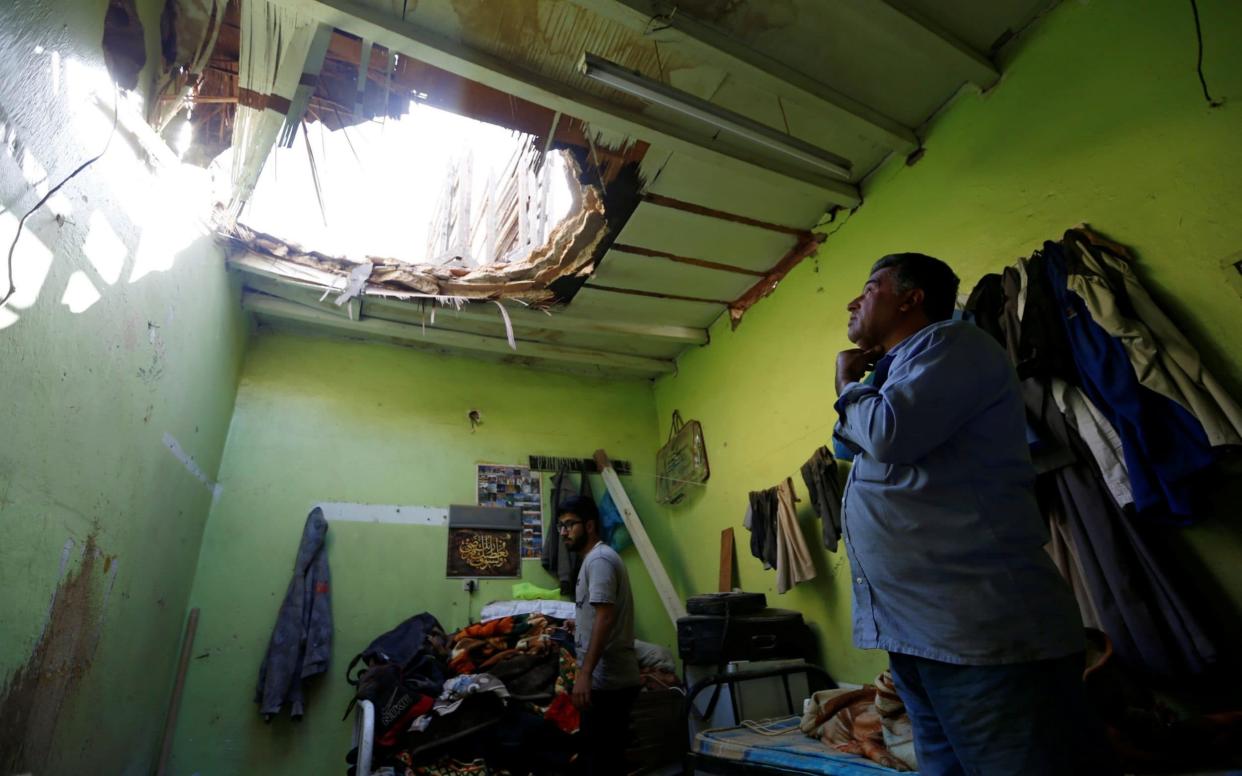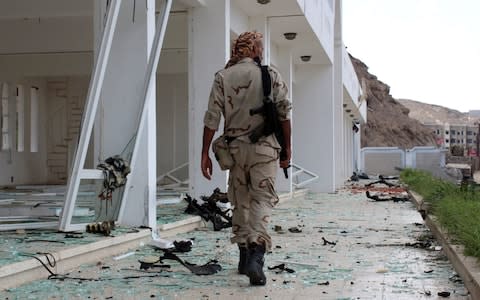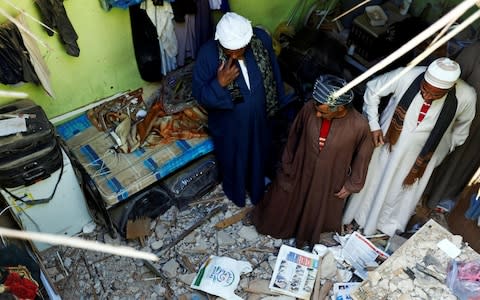Saudis shoot down missiles fired by Houthi rebels in Yemen

Houthi rebels in Yemen fired ballistic missiles into Saudi Arabia overnight Sunday, claiming their first casualty in the capital city since the kingdom intervened in the conflict three years ago.
Saudi Arabian forces said their air defences intercepted three missiles fired at Riyadh and four others at the southern cities of Khamis Mushait, Jizan and Najran.
One Egyptian was killed and two of his countrymen were wounded by shrapnel that fell on a house in Riyadh, with residents reporting loud explosions and bright flashes in the sky shortly before midnight.
Video taken by motorists showed the remains of a missile fuselage smoking in the middle of a highway in Riyadh.
"This aggressive and hostile action by the Iran-backed Houthi group proves that the Iranian regime continues to support the armed group with military capabilities," Turki al-Malki, spokesman of the Saudi-led coalition, said.
New angle suggests this is actually a spectacular failure of a #Saudi interceptor and not the missile fired at #Riyadhpic.twitter.com/TejVbA8fh3
— Strategic Sentinel (@StratSentinel) March 25, 2018
"The firing of multiple ballistic missiles towards cities is a serious development."
The war in Yemen has pitted the rebels and their Iranian allies against Yemeni factions aligned with a military coalition which includes Saudi, the US and Britain.
While it is not the first such attack on the kingdom, Houthi ballistic missiles have increased in range over time.
A November 4 launch previously targeted King Khalid International Airport in the capital, showing the missiles had a range of over 620 miles.
Western analysts identified it as being based on the Qiam missile type, an Iranian variant of the Scud system.
Saudi Arabia has blamed Iran in the past for supplying the rebels with weapons, a charge Tehran has denied.
Unclear if this is the remains of the Saudi interceptor or the Houthi missile fired from Yemen: pic.twitter.com/t57vP12ADb
— فيصل عيدروس (@faisaledroos) March 25, 2018
The November attack saw the Saudi-led coalition escalate its attacks in response as well as a tightening of a blockade on the country’s ports and airports, aggravating an already dire humanitarian situation for millions.
However, some experts raised questions over whether the missiles fired on Sunday were successfully intercepted and suggested the kingdom could have been overstating the capability of its missile defense system.

One video appears to show a Patriot missile launch go rapidly wrong, with the missile changing course mid-air, crashing into a neighborhood in Riyadh and exploding. Another appears to detonate shortly after being launched.
Saudi Arabia has faced criticism over its role in Yemen's civil war, with warnings that it was "orchestrating what will potentially become the worst famine in the last 50 years".
Britain, which has sold billions of arms to Saudi since its bombing campaign began in 2015, has been criticised for its support of the ultra-conservative country.

Boris Johnson, Foreign Secretary, and Penny Mordaunt, International Development Secretary, said yesterday that Saudi Arabia has "the right to defend itself against security threats including missiles launched from Yemen".
"If Iran is genuinely committed to supporting a political solution in Yemen - as it has publicly stated - then it should stop sending in weapons which prolong the conflict, fuel regional tensions, and pose threats to international peace and security," the two Cabinet ministers said in a joint statement.
Amnesty International said the attack may be a war crime.
“Launching indiscriminate attacks is prohibited by international humanitarian law and can constitute a war crime," a spokesperson for the human rights organisation said.
“A high death toll may have been averted, possibly due to the missiles being intercepted, but that doesn’t let the Houthi armed group off the hook for this reckless and unlawful act.
"These missiles cannot be precisely targeted at such distances, so their use in this manner unlawfully endangers civilians."

